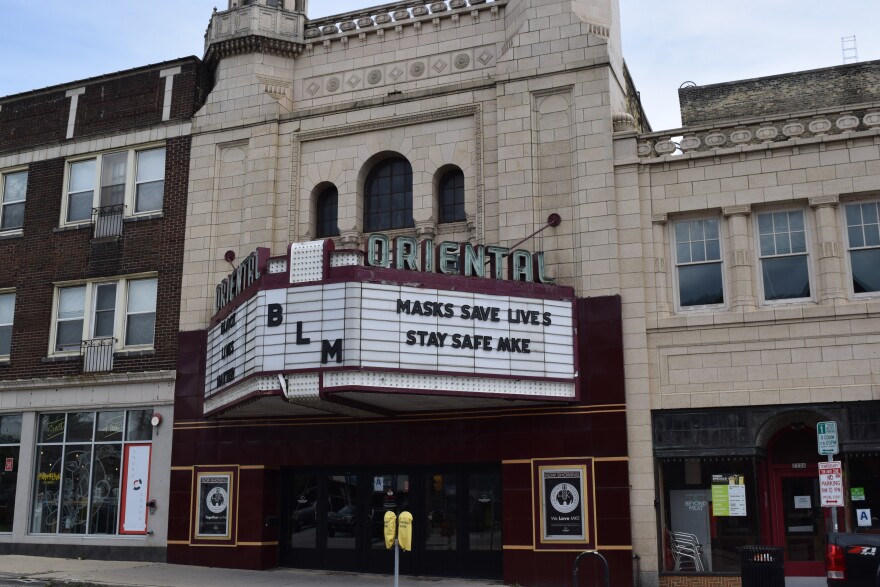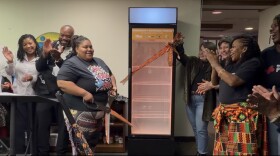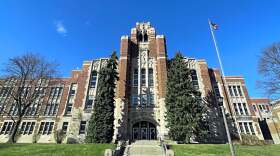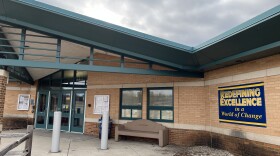When museums, galleries and theaters close that means painters, dancers and musicians don’t have a place to perform or a source of income.
Dozens of them talked about the challenges they face in a video conference Tuesday arranged by the Wisconsin Arts Board. The meeting included 15 arts organizations to help brainstorm ways for artists to survive the pandemic. Dozens of artists took turns speaking.
One of them was Freida High Wasikhongo Tesfagiorgis. She is a painter, art historian, and a Professor Emerita of African American and African Art History and Visual Culture of the Departments of Afro-American Studies, Gender & Women’s Studies and Art, at the University of Wisconsin-Madison.
“Today, the world remains at a state of crisis, as we cope with COVID-19, homelessness, hunger, and so many other problems, and yet, we are also here talking about art. We’re meeting and talking about art, amid all of these problems, because art is a critical aspect of our life, art is life, for many of us,” she says.
Jenie Gao, who’s based in Madison, said the pandemic is hitting the working and lower middle-class artists the hardest. So, when it comes to the art scene, she says it’s important to center the needs of individuals over institutions.
“If we are serious about protecting people during the pandemic then we need to figure out how to stay closed with social safety nets in place instead of open at all costs, which requires the exploitation of working-class labor. Again, we need to advocate for solutions that center the well-being of people instead of the value of property. It's not just ‘support the arts.’ In our case, it's supporting artists,” Gao says.
Several people spoke of providing support to young artists, in particular, who may be struggling to get established.
Some of them are back in Wisconsin due to the pandemic, says Jeremy Popelka. He runs a glass studio in Sturgeon Bay in Door County, Wis. — a tourist destination with a noted arts scene.
“A lot of younger artists have had to move back to our community, which has been great for Sturgeon Bay. I mean, we need that lifeblood from some of the bigger cities. People from Minnesota from New York City have moved back here just to kind of wait things out. And so, it brings this great energy, but also, it's an energy that needs to be tapped into at some point to connect with so that we can help them, and they can help Wisconsin,” he says.
Berel Lutsky is a Milwaukee printmaker and art professor at UW-Green Bay and Manitowoc, and gallery director. He says the arts community could do more to get the word out about arts events that are still taking place—despite the pandemic.
“It'd be great if there was a better clearinghouse for events and making sure that we have other ways of getting the word out about things that we're doing,” he says.
Meanwhile, Freida High Wasikhongo Tesfagiorgis says this time of crisis also provides opportunity. She says there’s been a long-term struggle to increase collaborations within the arts community, to include women artists and artists of color.
She says the video chats that have become so common this year open a door.
“With this, Zoom, this virtual kind of virtual reality we call it, we have more possibilities of, of linking up of connecting greater even greater than just writing letters or talking on telephone. So I would like to encourage us to really take advantage of this Zoom feature, and communicate more across the city,” says Tesfagiorgis.
But she isn’t just interested in improved communication among artists, she also wants to see artists from throughout Wisconsin succeed in this challenging time. So she’s calling on people who can fund the arts to look for ways to serve artists all over the state.
George Tzougros is the executive director of the Wisconsin Arts Board and he echo's Tesfagiorgis' message of using this time to create stronger bonds between artists. He notes that many of the issues artists face existed before the coronavirus pandemic, including the key issue of racial inequities in the arts.
"We're gonna work with people to really suss out the needs and then figure out how we can meet that need in cooperation with the different parts of the community," says Tzougros.
Coming out of Tuesday's meeting he had several other issues on his mind:
"Money, equity, inclusion, and the one other thing that we're really focused on is helpinng people re-open," notes Tzougros.
He explains that to re-open, venues like musuems or movie theaters need to have ample amounts of personal protective equipment, implement physical changes to reduce spread in their spaces, and then figure out how to deliver an arts expereince in the safest way possible.
One positive change Tzougros has seen during the pandemic is the wide recognition of artists as business people. Going forward, he thinks this will help artists relationships with entities like the state government as they get the recognition they deserve.








